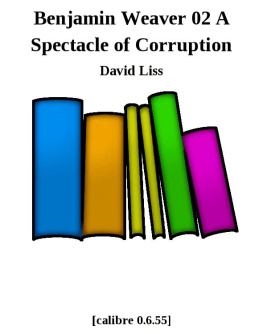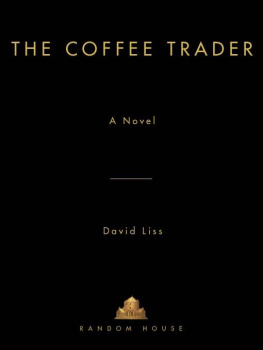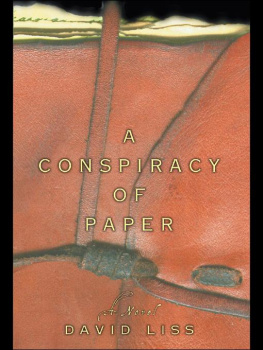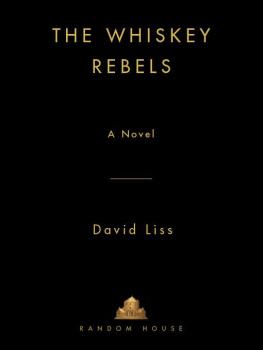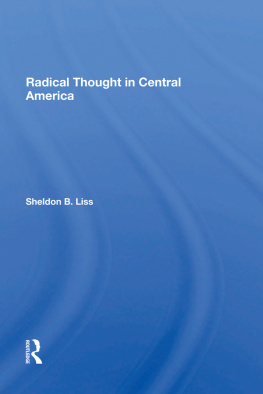
David Liss
The Whiskey Rebel
It was rainy and cold outside, miserable weather, and though I had not left my boardinghouse determined to die, things were now different. After consuming far more than my share of that frontier delicacy Monongahela rye, a calm resolution had come over me. A very angry man named Nathan Dorland was looking for me, asking for me at every inn, chophouse, and tavern in the city and making no secret of his intention to murder me. Perhaps he would find me tonight and, if not, tomorrow or the next day. Not any later than that. It was inevitable only because I was determined not to fight against the tide of popular opinion-which is to say, that I ought to be killed. It was my decision to submit, and I have long believed in keeping true to a plan once it has been cast in earnest.
It is a principle I cultivated during the war-indeed, one I learned from observing General Washington himself. This was in the early days of the Revolution, when His Excellency still believed he might defeat the British in pitched battle, Continental style, with our ill-disciplined and badly equipped militias set against the might of British regulars. It was the decisive military victory he wanted; indeed, in those early days it was the only sort he believed worth having. He would invite the officers to dine with him, and we would drink claret and eat roast chicken and sip our turtle soup and he would tell us how we were going to drive the Red-coats back at Brooklyn, and the unfortunate affair would be over before winter.
That was during the war. Now it was early in 1792, and I sat at the bar of the Lion and Bell in that part of Philadelphia euphemistically called Helltown. In that unsavory scene, I drank my whiskey with hot water while I waited for death to find me. I kept my back to the door, having no wish to see my enemy coming and because the Lion and Bell was as unlovely a place as Helltown offered-and those were mighty unlovely. The air was thick with smoke from pipes plugged full of cheap tobacco, and the floor, naught but dirt, had turned to mud with the icy rain outside and the spills and spitting and tobacco juice. The benches lay lopsided in the newly made hummocks and ruts of the ground, and the drunken patrons would, from time to time, topple over and tumble like felled timber into the muck. Perhaps a drinker might take the trouble to roll a friend over to keep him from drowning, though there could be no certainty. Helltown friends were none the best.
It was a curious mix there: the poor, the whores, the desperate, the servants run off for the night or the month or forever. And alongside them, throwing dice upon uneven surfaces or hunched over a hand of cards spread across ripped velvet, were the gentlemen in their fine woolen suits and white stockings and shimmering silver buckles. Theyd come to gawk and to rub elbows with the colorful filth, and most of all theyd come to game. It was the spirit of the city, now that Alexander Hamilton, that astonishing buffoon, had launched his great project, the Bank of the United States. As Secretary of the Treasury, he had single-handedly transformed the country from a republican beacon for mankind into a paradise for speculators. Ten years earlier, with a single stroke, he had transformed me from patriot to outcast.
I removed from my pocket a watch, currently my only possession of value if one did not account my slave, Leonidas. I had, despite the decisions that had prevailed among the wise drafters of our Constitution, never quite learned to think of Leonidas as property. He was a man, and as good a man as any Id known. It sat ill with me to keep a slave, particularly in a city like Philadelphia, whose small population of owned blacks numbered in the dozens, and one could find fifty free blacks for each bondsman. I could never sell Leonidas, no matter how dire my need, because I did not think it right to buy and sell men. On the other hand, though it was no fault of his, Leonidas would fetch at auction as much as fifty or sixty pounds worth of dollars, and it had always seemed to me madness to emancipate such a sum.
So the timepiece, in practical terms, was currently my only thing of worth-a sad fact, given that I had removed it from its rightful owner only a few hours earlier. Its glittering face told me it was now half past eight. Dorland would have eaten his fashionably late dinner well over two hours ago, giving him ample time to collect his friends and come in search of me. It could be any minute now.
I slid back into my pocket the timepiece Id taken on Chestnut Street. The owner had been a fat jackanapes, a self-important merchant. Hed been talking to another fat jackanapes and had paid no mind while I brushed past him. Id not planned to take the watch, nor did I make a habit of such things as common theft, but it had been so tempting, and there seemed to be no reason not to claim it and then disappear in that crowded street, clacking with the walking sticks of bankers and brokers and merchants. I saw the watch, saw it might be taken, and saw how I might take it.
Even then, if that had been all, I would have let it go, but then I heard the man speak. It was his words, not my need, that drove me to take what was not mine. This man, this lump of a man, who resembled a great and corpulent bottom-heavy bear, forced into a crushed-velvet blue suit, had been invited to a gathering the next week at the house of Mr. William Bingham. That was all I knew of him, that he, a mere maker of money, nothing more than a glorified storekeeper, had been invited to partake of the finest society in Philadelphia -indeed, in the nation. I, who had sacrificed all for the Revolution, a man who had risked life in return for less than nothing, was little more than a beggar. So I took his watch, and I defy anyone to blame me.
Now that it was mine, I examined the painting in the inside cover, a young lady of not twenty, plump of face, like the watchs owner, with a bundle of yellow hair and eyes far apart and open wide, as though shed been in perpetual astonishment while she sat for the portrait. A daughter? A wife? It hardly mattered. I had taken from a stranger a thing he loved, and now Nathan Dorland was coming to avenge such wrongs, too innumerable to catalogue.
Handsome timepiece, said Owen, standing behind the bar. He was a tall man with a head long and narrow, shaped like one of the pewter mugs into which he poured his ales, with wheat-colored hair that curled up like foam. Timepiece like that might go a way toward paying a debt. He held out one of his meaty hands, covered with oil and filth and blood from a fresh cut on his palm to which he paid no mind.
I shrugged. With all my heart, but you must know the watch is newly thieved.
He withdrew the hand and wiped it on his filthy apron. Dont need the trouble, but I ought to send you to fence it now, before you lose it at game.
Should I turn the watch to ready, I would not use it for something so ephemeral as a tavern debt. I pushed my empty mug toward him. Another, if you please, my good man.
Owen stared for a moment, his tankard of a face collapsed in purse-lipped indecision. He was a young man, not two-and-twenty, and he had a profound, nearly religious reverence for those who had fought in the war. Living, as he did, in such a place as Helltown, and moving through indifferent social circles, he had never heard how my military career had met its conclusion, and I saw no advantage in sharing information that would lead to his disillusionment.
Instead, I favored other details. Owens father died in the fighting at Brooklyn Heights, and more than once had I treated Owen to the tale of how I had met his father that bloody day, when I was captain of a New York regiment, before my true skills were discovered and I was no longer to be found upon the battlefield. That day I led men, and when I told Owen the tale, my voice grew thick with cannon fire and death screams and the wet crunch of British bayonet against patriot flesh. I would recount how I had given Owens honored father powder during the chaos of the ignominious retreat. With blood and limbs and musket balls flying about us, the air acrid with smoke, the British slaughtering us with imperial fury, I had taken the time to aid a militia volunteer, for we had shared a moment of revolutionary comradeship that defied our differences in rank and station. The tale kept the drinks flowing.
Next page

